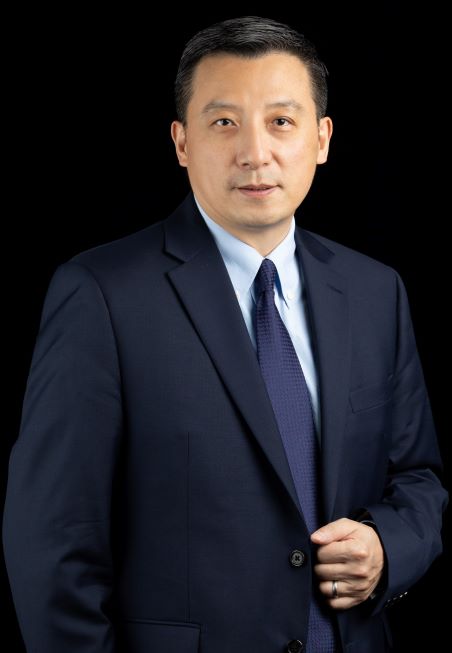China Biotech CEO Podcast: CANbridge’s Xue On Orphan Drug Coverage, Financing, Gene Therapy
Global Rights And IP Are Key
Executive Summary
While many of his peers elbowed each other to leap into oncology, James Xue decided to focus on rare diseases such as Hunter’s Syndrome. Now, 10 years after founding CANbridge, the CEO sat down for an audio interview with Scrip to offer his views on a flurry of key issues impacting orphan drug development in potentially the world's largest pharma market.
James Xue was an formerly executive with Genzyme in Boston and later became the China representative for the rare disease specialist before its acquisition by Sanofi.
He founded CANbridge Pharmaceuticals Inc. in 2012 and licensed the China rights from Puma Biotechnology, Inc. for the small molecule anticancer Nerlynx (neratinib). In February 2021, CANbridge said it was returning the exclusive rights in Greater China to the drug to Puma, which has now granted these to French drug developer Pierre Fabre.
In a wide-ranging discussion with Scrip, Xue touched on the drastic price-cutting in the China's latest rounds of reimbursement talks, examined the impact of US-China decoupling on cross-border deal-making and financing, explained the role of education and information sharing in orphan drug coverage, and offered takeaways from his over 20-year experience developing rare disease treatments in China.
CANbridge CEO and founder James Xue (Credit: CANbrige)
The Beijing and Boston firm’s major marketed asset following this was Hunterase (idursulfase beta), licensed from GC Biopharma of South Korea. An enzyme replacement therapy for Mucopolysaccharidosis type II, or Hunter syndrome, this marked the company’s “full transition to rare diseases.”
Following a proven path of in-licensing, CANbridge soon moved into cholestatic liver disease and enzyme replacement therapies via deal with Mirum Pharmaceuticals, Inc. and gene therapy development space with Logic Biosciences Inc. The first was focused on developing maralixibat, an oral inhibitor of apical sodium-dependent bile acid transporter for Alagille syndrome, and the latter is an adeno-associated virus (AAV)-based gene therapy for Fabry and Pompe disease. (Also see "Asia Deal Watch: CANbridge Licenses Orphan Disease Candidates From Mirum, LogicBio" - Scrip, 6 May, 2021.)
As the life sciences sector in China faces "innovation fatigue," amid many companies betting heavily on cancer and immuno-oncology treatments, rare diseases remains a largely untapped market. One major detrimental factor is the lack of a reimbursement mechanism. Orphan drugs, often costly, have to wait years for coverage, which may also come with a steep price cut.
This was underscored by Biogen, Inc.’s spinal muscular atrophy drug Spinraza (nusinersen), which was slashed by over 95% during the annual price negotiation round in late 2021. The so-called linghuicanjia ("soul-deep price-cutting") has many wondering if rare disease drug development remains a viable option worth betting on.
As the first rare disease developer from China to go public, CANbridge listed its shares in Hong Kong in late 2021, amid a challenging fund-raising environment. The ongoing wider US-China decoupling deepened, spilling over from trade to more areas including financing, while Chinese regulators launched relentless crackdowns on the broader tech sector starting in the second half of 2021. (Also see "BeiGene, CANbridge, Dizal IPOs Set China Biotech Fundraising Record But Share Prices Disappoint" - Scrip, 21 Dec, 2021.)
Nevertheless, a new crop of rare disease startups are spurring up interest in China, driven by regulatory reforms to accelerate access to life-saving treatments. These ventures hope to bank on in-licensing assets from Western companies and on novel cell and gene therapies to offer solutions to potentially the largest orphan drug market in the world.
Xue offered his views on a multitude of these and other topics in the interview, including the in-licensing model in China, National Reimbursement Drug List negotiations and next-generation gene therapy, as well as lessons learned from CANbridge’s 10-year journey in China.
Timestamps
-
Introduction
-
Impact of Shanghai lockdown on biopharma industry's clinical development (0005-0010)
-
China's COVID-19 restrictions' impact on commercial supply of drugs to patients (0010-0020)
-
Impact of US-China decoupling on cross-border funding, financing and deal-making (0020-0030)
-
Views on drastic price cuts in exchange for inclusion in China's National Reimbursement Drug List (0030-0042)
-
Views on getting CANbridge’s marketed drug Hunterase covered by Chinese basic insurance (0042-0050)
-
Role of commercial insurance as complementary to expanding access to novel drugs (0050-0052)
-
Education and information sharing with government stakeholders (0053-0054)
-
Investor sentiment towards orphan drug development after drastic price-cutting (0055)
-
Importance of developing truly global assets for the international market, not only for China (0055-0057)
-
Views on in-licensing model that many Chinese firms rely on but which is seen less positively by regulators (0057-0060)
-
China's rare disease space becoming crowded as domestic PD-1 developers get cold shoulder from US regulators, CANbridge's plans to become frontrunner (0060-0063)
-
Importance of having a global portfolio and global IP for next-generation gene therapy development in China (0063-0065)
-
Commercial vector manufacturing for gene therapy development (0067-0069)
-
Takeaways for rare disease developers in China (0069)
-
Closing

